For several years now, Wavestone’s different offices have been periodically identifying startups active in the field of cybersecurity. Wavestone Brussels office has therefore carried out its very first census in this field: the 2020 Belgian Cybersecurity Startup Radar.
A proven and pragmatic methodology
This study starts with a global overview of the Belgian cybersecurity ecosystem based on a first mapping of companies active in this field. To that end, we consulted 3 main sources. The first one are databases specialized in the identification of startups, then co-working spaces & incubators and finally organizations & associations supporting cybersecurity startups.
Only companies marketing a product (application, platform, hardware, etc.) were retained. Consulting companies are out of scope.
The purpose of this first step is to establish a list of actors in order to then apply the selection criteria of the Wavestone radar. Those criteria allow us to establish the perimeter of the radar in accordance with those already carried out previously by our others offices.
The criteria we select to map out the companies are the age, the location and the size:
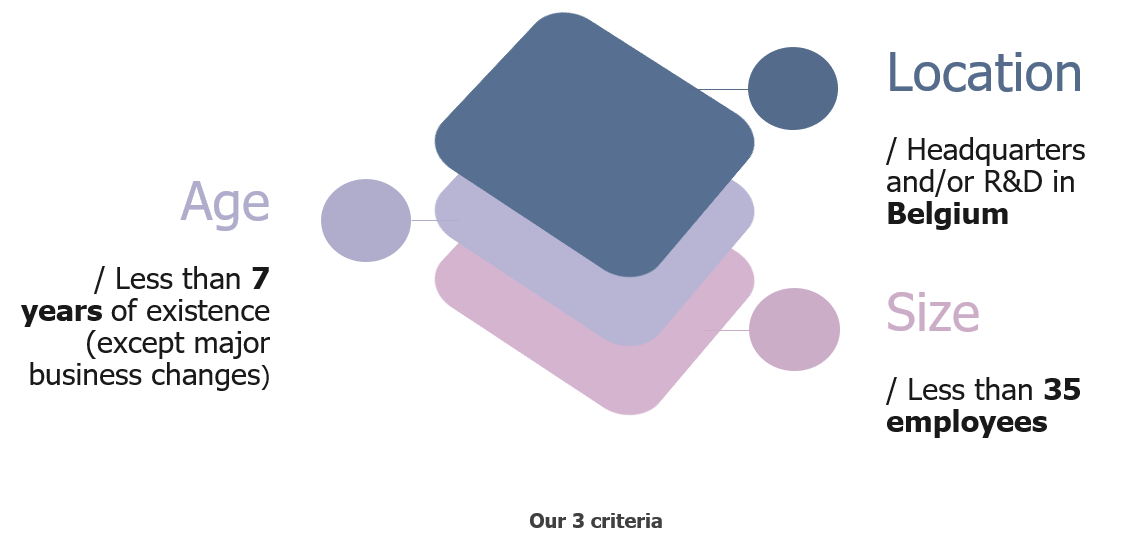
The result of our 2020 Belgian cybersecurity startup radar
After having drawn up a list of companies active in Belgium and offering a product, we apply our 3 criteria. The first census identified 30 companies, 11 of which met our criteria.
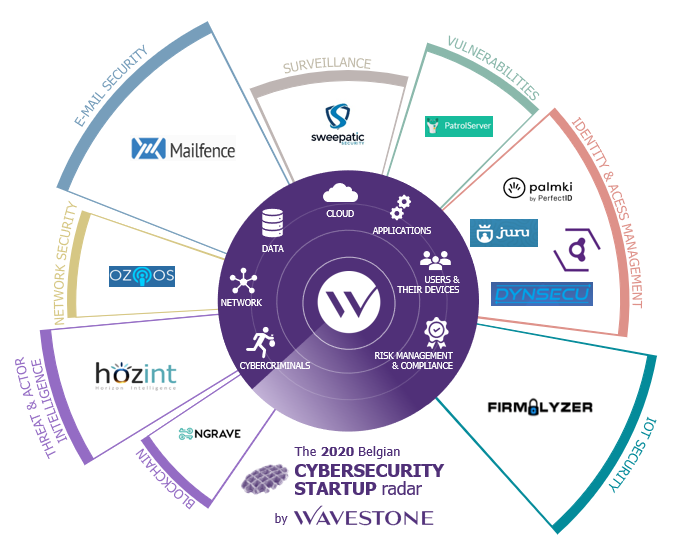
The results of our study allow us to identify certain trends for the Belgian ecosystem. The typical Belgian cybersecurity startup is extra small, working in Brussels in the field of IAM.
More than 1/3 of the identified startups works in the field of IAM
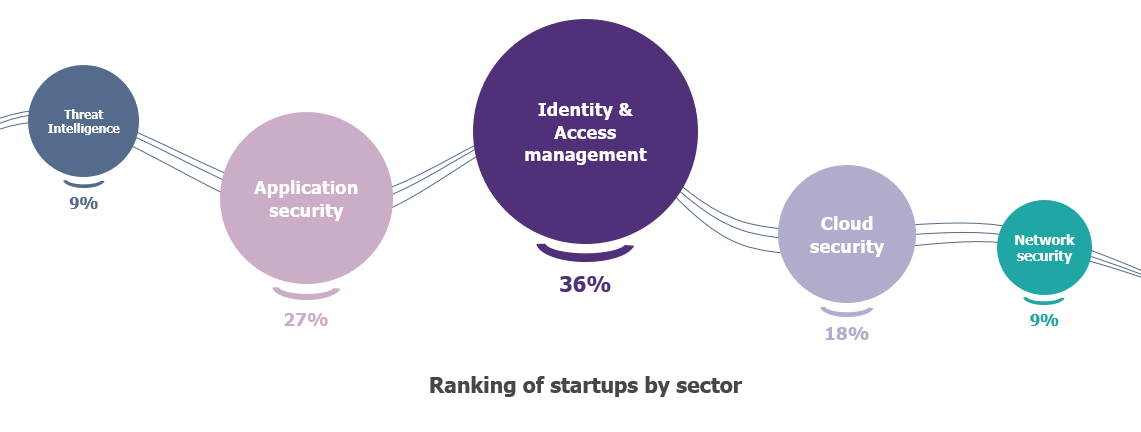
Identity and Access Management (IAM) and Application Security, which groups “Vulnerabilities”, “E-mail security” and “Surveillance” categories, are the two most important areas of activity and represent more than 60% of the cyber ecosystem. The figure reveals also that the IAM seems to be the most mature sector in this ecosystem, echoing the figures from the French, English or Swiss startup radars, which show a similar trend.
More than 80% of the startups surveyed have less than 10 employees
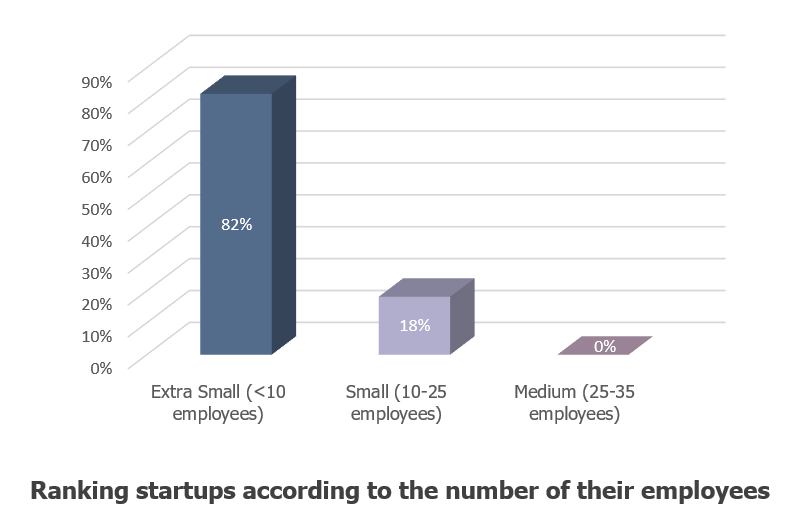
The majority of the startups on our radar have few employees: more than 80% have less than 10 employees and none have more than 35 employees.
In Belgium it is the extra small startup that predominates compared to the other radars of the group that see the medium-sized startups more numerous.
The cyber ecosystem is mainly concentrated in Brussels Region with almost 60% of startups, followed by Leuven and Antwerp by far
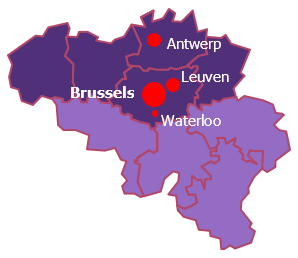
The majority of startups are located in Brussels. No wonder, given that Brussels is the capital and one of the most dynamic economic centers in the country.
Focus on the analysis of the degree of innovation of startups
The next step in the analysis is to estimate the level of innovation of the companies on the radar. To do this, it is necessary to estimate a “degree of innovation” whether:
• The company imagines a completely new security solution
• The company reinvents an existing security solution
• The company secures already existing uses (IoT, Cloud, etc.)
Most Belgian startups are reinventing existing solutions or providing a tool to secure new uses.
Quite logically, few startups work on a totally innovative project. This is also a trend observed in other international Wavestone radars, where the degrees of innovation are more or less the same as in Belgium.
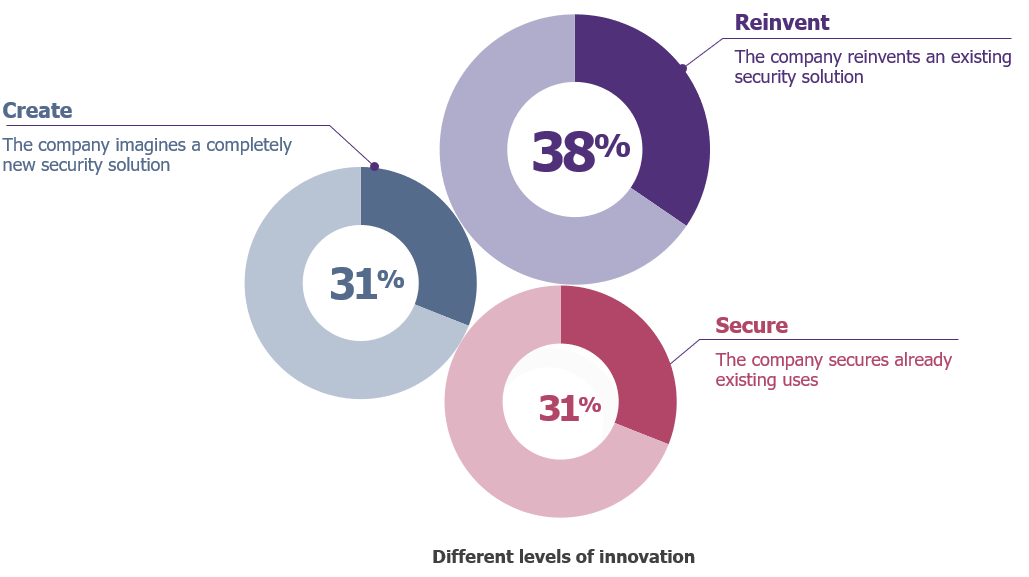
The other trend is the low (or even non-existent) presence of startups active in the fields of “data security”, “network security” and “cloud security”. Several actors and employees of the startups met during this study confirmed the firm’s convictions on the subject.
Firstly, the cyber market only rings the bell for experts or insiders, which can repel investors. Then, cybersecurity is a complex field that often requires special IT expertise and specific support. Finally, the current maturity of the market does not facilitate startups to find their customers.
These observations may also explain why few contacted incubators support IT startups, and by extension the cyber field.
Conclusion
The 2020 Belgian Cybersecurity Startup Radar shows that the vast majority of startups are located in Brussels, have less than 10 employees and work in the IAM sector. This study also reveals that the Belgian cybersecurity market is still in its infancy. Most of the startups encountered are either looking for financing, customers or are still in the testing phase.
The objective of Wavestone is to follow the evolution of this ecosystem through new editions: new startups appearing during the year, possible disappearance, etc.
In order to prepare these next versions, and for the purpose of improving and enriching this study, please do not hesitate to contact us if you know any company that might join our radar.


